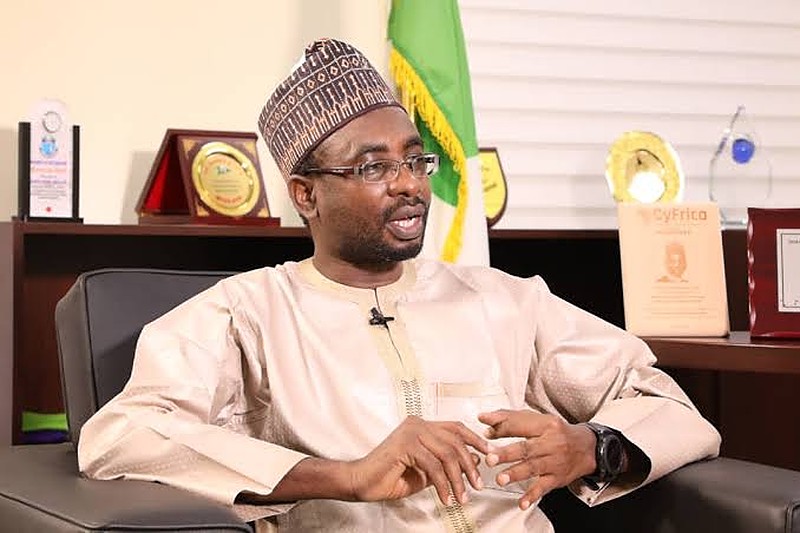The Director-General, National Information Technology Development Agency (NITDA), Kashifu Inuwa, on Thursday said Information and Communication Technology (ICT) was critical to the growth of the agricultural sector.
Inuwa said ICT could guarantee cash flow and be a major contributor to the nations’ Gross Domestic Product (GDP).
Inuwa said this this while receiving the Co-Founder of Corporate Farmers International (CFI), Mr Akinwale Alabi, and his team at the Agency’s headquarters in Abuja.
This was made known in a statement signed by Hadizar Umar, Head, Public Affairs, NITDA.
Inuwa noted that disruptive innovation, using emerging technologies, would create new markets and easy access to new products and services.
According to him, there is need to create value chain, and platform to bring farmers, up takers and financial institutions together.
He said that would ease the purchase of goods and services through orders placed on the platform, and that a logistics company could also be requested to pick up and deliver the item ordered.
“NITDA launched National Adopted Village for Smart Agriculture (NAVSA) programme to boost the capacity of young Nigerian farmers in the digital world market.
‘’NAVSA seeks to digitally transform the agricultural economy of farmers and their business models across all value chains to increase productivity.
‘’The NAVSA pilot programme was launched at the Federal University of Agriculture Abeokuta, (FUNAAB) Ogun State, with 100 (One Hundred) young farmers,” he said.
Inuwa said NITDA’s Strategic Roadmap and Action Plan (SRAP) 2021-2024 was crafted by the agency to transform Nigeria into a sustainable digital economy driven by technology.
He said SRAP had seven pillars namely: Developmental Regulation; Digital Literacy d Skills, Digital Transformation, Digital Innovation d Entrepreneurship, Cybersecurity, Emerging Technologies and Promotion Indigenous Content Development.
The Co-Founder of Corporate Farmers International, Akinwale Alabi, commended the DG for the giant strides, intervention, programmes, and the launch of the digital agricultural strategy.
He further stated that it developed a digital e-learning system for young entrepreneurs, which had helped many farmers gain knowledge about agricultural activities, thereby changing their perception of farming.


 Entertainment5 days ago
Entertainment5 days ago
 Health1 week ago
Health1 week ago
 Health4 days ago
Health4 days ago
 Football1 week ago
Football1 week ago
 Football1 week ago
Football1 week ago
 Crime4 days ago
Crime4 days ago
 Crime1 week ago
Crime1 week ago
 Education6 days ago
Education6 days ago












